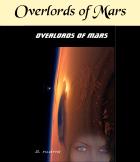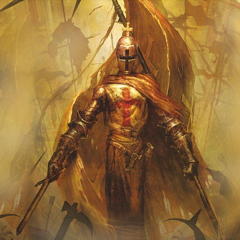And a free science fiction story e-mailed to you if you want it (see end of this post)
That rough sphere of metal, scorched from re-entry is what the first man to orbit the Earth came down from the sky in. He landed in a farmer’s field, the heat of re-entry scorching some of the man’s crops, and the farmer, astonished at this Starman nevertheless offered him some bread and milk.
This happened exactly 50 years ago today. Gagarin was probably the first man from history I admired the most and wanted to know about the most. He had flown eight years and few months before I was born, and although I knew as much as there was to know about the Apollo flights, information on the Vostok capsules and Gagarin himself was much scarcer to come by. I was probably the only 12 year old who actually knew the Vostok had a superior escape mechanism to even the space shuttle today.
I tried to imagine what it would have been like to be the first man to be strapped to an intercontinental ballistic missile that would fire off into the stratosphere and then pierce it, explosive bolts and rocket stages firing in various stages as you got higher and higher, until eventually you were just floating in space, orbiting the Earth in about 90 minutes, seeing sunrise and sunset in less than two hours and the curvature of the Earth. And knowing you are the first of our race to do this. No one had ever gone that high, that far or that fast before.
Then falling back to Earth like a comet, the air itself scorching the metal of your tiny capsule as you screeched your way back through fire and back down to the inevitable hard landing.
Gagarin’s real persona was hidden behind the Soviet Union’s Iron Curtain for decades, the official information was so obviously manufactured it would seem hard to get a sense of the man. And yet, I always felt as I knew Gagarin. I didn’t speak his language, he lived in a far-off place whose history I found so desperate that I dropped the subject at school because of how it was being taught. He was career military in a military state and I had studiously avoided conscription thanks to living outside of my birth country since an early age. But there was one thing I absolutely knew I had in common with him.
If they had strapped me to that rocket, I would have been just as eager as he had been to be there. Nor was I alone. After Laika became the first animal to orbit the Earth in 1957, the Russian space program received thousands of letters from people all over the soviet union, including many people serving time in jail, who asked to be sent up next. Many offered to be sent up without any possibility of return or survival.
It is this part of Gagarin that no amount of propaganda, no amount of official bureaucracy or military machinery, no distance or lack of common language could ever hide. Above all, Gagarin was a man. A true explorer. Willing to go into the deepest, widest, most endless unknown of all, space. For I think it is ultimately this that makes a man more than anything: The willingness to face the dark unknown before him with a sense of adventure, wonder, and a magic mix of seriousness and happiness.
It is 50 years since he flew and changed the human race forever, and now there is also a little more about him available, in the form of a book that finally tells more of the human side of Gagarin free of propaganda, and the man that comes through in this picture is if anything, one I can only respect more, due to his humanity, his courage in the face of brutality from a young age, witnessing his brother be hanged by a Nazi and barely escape with his life, and the strange, surreal journey that guided him to become the first man in space. it’s a great book, written with humanity and I think also a rare dedication to honesty.

Starman: The Truth Behind the Legend of Yuri Gagarin
I have few heroes, but Gagarin is one of them for me, and will remain so. I know there are more of us out there than anyone suspects. Would be astronauts, that would gladly strap themselves to rockets and other weird contraptions to explore where no one has yet gone. Willingly risking life and limb to traverse the void to other stars.
***
It is not widely known, but the technology to do a lot more than just get into orbit or even to the Moon, has existed a long time already. And at some point, we, the human race, will have to deal with learning how to use this powerful, dangerous, and yet also revolutionary technology.
I am writing a science fiction novella that will be available for free soon, and covers some of these topics in the form of fiction. I would welcome a few readers who would be willing to give me some feedback before I release it. As it will be free, I will not be using the services of an editor, agent and so on, so you, my dear readers, will be my guinea pigs, who will help me refine and improve the story I have written. My hope would be to spark in readers, the same sense of wonder I had when first finding out about the rudimentary form of space-flight mankind had just begun a few days before I was born. The kind that would allow us to explore other worlds.
If you would like to receive a free copy of my work so far, please send me an e-mail or leave me a comment below and I will e-mail it to you. I only ask that you give me some feedback after you read it.










Hello there,I’ve read this topic and I conclude it does awake interest,although I always had admired such pioneers and geniuses.
I’ve already got some books of similare nature that I enjoy reading,such science fiction like The Martian from Andy Weir,although most people consider it as fictional as can get,it was written in such a passion for imagionation and coveres the human factor that is that lonely man on another world.
I would love to read your novella and would be happy to email you with my thoughts. Good luck and keep thinking,Ivan.